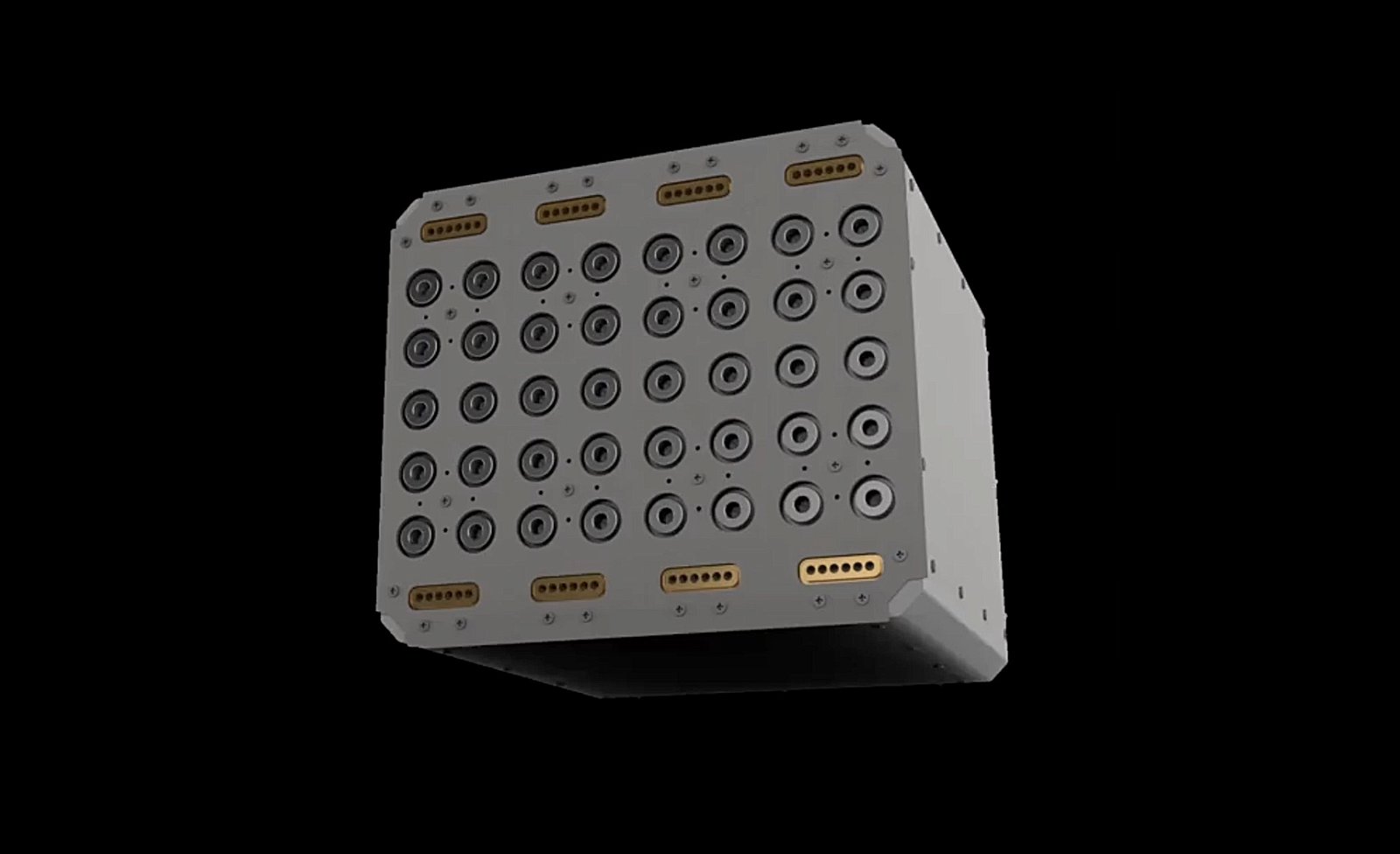German propulsion company Morpheus Space has officially opened the world’s first-ever facility designed to mass produce its second-generation field emission electric propulsion (FEEP) system, the GO-2. Dubbed “Reloaded,” the Dresden-based facility will immediately begin production of 100 units of the GO-2, a potentially breakthrough system that uses liquid metal as a propellant.
In an email to The Debrief, company executives explained the growing need for a facility like Reloaded that can quickly and efficiently produce systems like the GO-2, which would provide satellite operators with extended mobility throughout the entire mission.
“One of the biggest problems satellite operators face today is the limited supply of available propulsion systems. We intend to sufficiently scale production of GO-2 to match this growing demand,” explained Morpheus Space President Kevin Lausten. “By offering a more affordable and readily available propulsion system able to facilitate all necessary maneuvers from initial orbit to de-orbit, the GO-2 marks an important leap for the industry.”
How Field Emission Electric Propulsion Systems are Changing Satellite Navigation
When companies launch satellites into space, many are locked into their initial location. However, for more advanced intelligence, military, and commercial applications, some satellites can change their orbital position depending on the need or mission parameters.
Unfortunately, changing a satellite’s position requires fuel. Given the high launch costs, which are almost exclusively governed by the payload’s weight, adding even small amounts of additional fuel can be extremely costly.
More recently, propulsion technology developers have turned to systems that rely heavily on electric power. Since most satellites can be equipped with solar panels, electric power generation systems don’t need to be included in a satellite’s inventory. Still, even the most advanced electric propulsion technologies require some propellant.
Since its establishment in 2018, Morpheus Space has worked to dramatically reduce the fuel needed for these systems to operate while designing reliable, powerful, and long-lasting propulsion technology. This work led to the development of the GO-2, which uses field emission electric propulsion technology and liquid metal to move a satellite around in space.
“This self-contained, plug-and-play, electric propulsion system is one of the most capable, efficient, and innovative solutions for mobility in space,” explained Morpheus Space CEO Daniel Bock in a previous email to The Debrief.
“It’s on the lower end of thrust on the spectrum of propulsion, but incredibly efficient and much safer,” Lausten added.
Cost and Availability Increasingly Important to New Space Companies
By establishing Reloaded, the Morpheus space team says it will be uniquely placed to help companies and government organizations move away from larger, more costly satellites without sacrificing mobility. It also positions itself as the go-to option for new space companies looking to access space on smaller, cheaper yet still versatile in-space propulsion systems. Offering these benefits to all types of customers is critical, the company explains, as missions are typically planned months or even years ahead of the actual launch.
“The industry is transitioning from large, costly satellites to proliferated networks of smaller, more affordable ones,” Bock told The Debrief. “These constellations, traditionally planned and deployed years in advance, lack flexibility to adapt to changing needs.”
According to Morpheus Space COO Martin Kelterer, the newly launched Reloaded facility will allow the company to meet this growing demand by offering a combination of affordability, quality, and efficiency that space launch companies can rely on.
“Production has the task of meeting the growing worldwide market demand for our efficient electric propulsion systems,” said Kelterer. “To this end, the quality of the production processes is of paramount importance in order to deliver reliable and efficient products to our customers.”
Listen to Morpheus Space President Kevin Lausten Discuss the Emerging Space race on Rebelliously Curious with Chrissy Newton.
Pay As You Go Option Opening Up Larger Marketplace
Along with the increased availability and reliability offered by the establishment of the Reloaded facility, Morpheus Space has been exploring options to reduce the up-front costs associated with a satellite’s launch. The result is a pay-as-you-go system that allows emerging New Space companies the opportunity to spread out their costs as they work toward an actual launch or even after they achieve commercial viability in space.
“Building and launching a satellite is expensive, and operators don’t begin earning revenue from these investments until the satellite is in orbit,” Lausten told The Debrief. “Commercial satellite operators who want to better align their costs with revenue are ideal candidates for the ‘Pay-as-you-Go’ model.”
Ultimately, this move into efficient and reliable production is almost surely a change that will be welcomed by the industry, where high costs and reliability are often at a premium. According to Bock, the ability of the Reloaded facility to meet the expected demand for the GO-2 field emission electric propulsion system could help revolutionize the way satellites and other emerging spacecraft navigate Earth’s orbit.
“Availability, reliability, and fuel efficiency have been barriers to space mobility long enough,” said Bock, highlighting the most common barriers to space. “We would like to see mass adoption of GO-2 so that we can establish a more capable and sustainable way for satellites to navigate our orbits.”
Christopher Plain is a Science Fiction and Fantasy novelist and Head Science Writer at The Debrief. Follow and connect with him on X, learn about his books at plainfiction.com, or email him directly at christopher@thedebrief.org.

